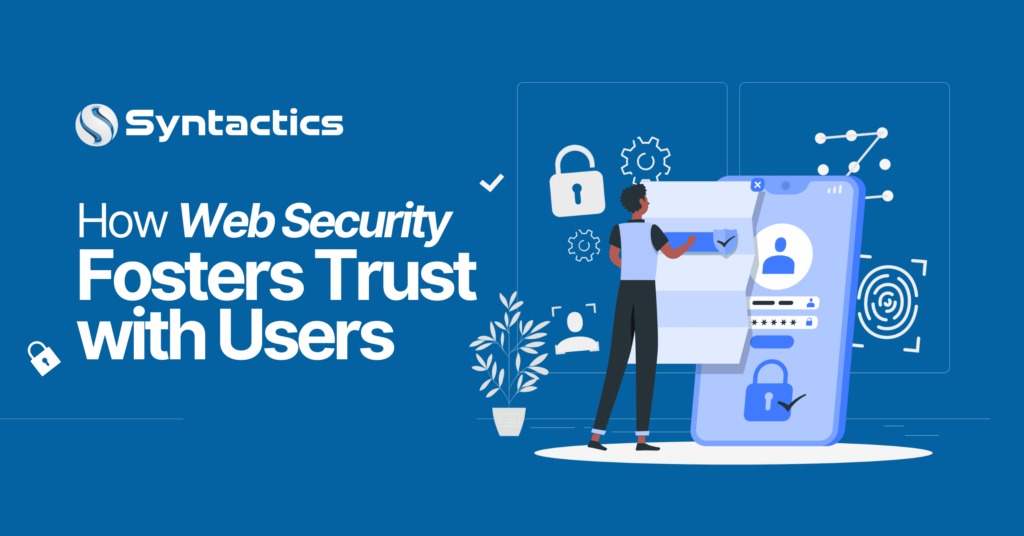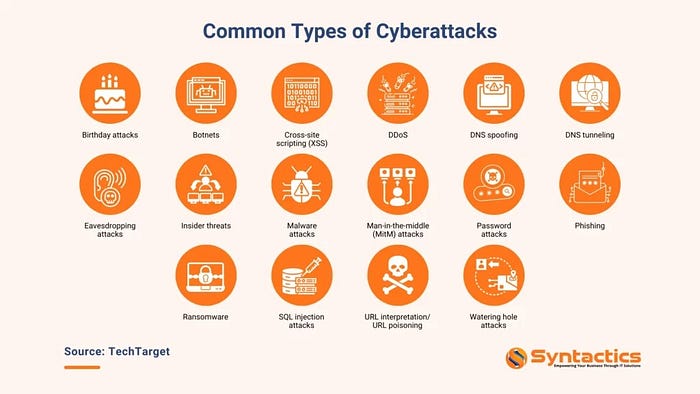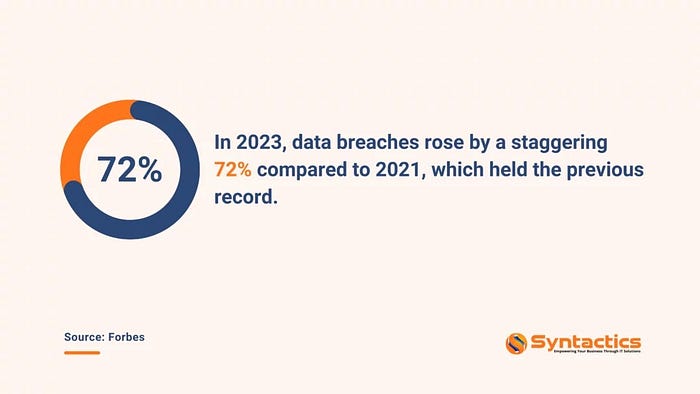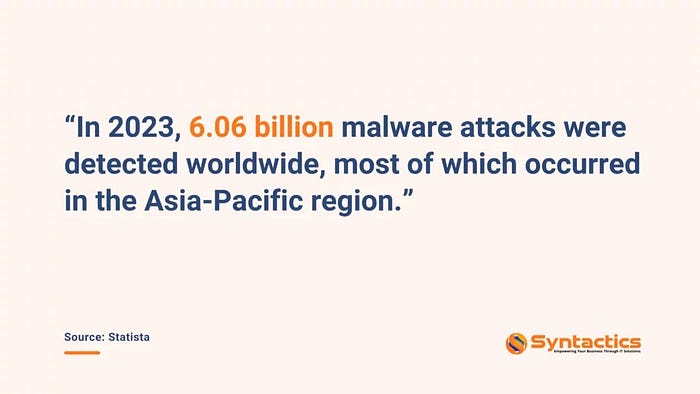How Web Security Fosters Trust with Users
 Pamela Salon
Pamela Salon
As more organizations and individuals migrate their activities to online platforms, cyber threats continue to evolve in complexity. According to Expert Insights, websites experience an average of 94 cyberattacks and are visited by 2,608 bots weekly. To counter this, many website owners collaborate with a web security solutions provider to safeguard users and foster trust.
In today’s digital landscape, cybercrime is a major concern for Internet users and organizations. Security is vital for any business with an online presence, be it an eCommerce platform or corporate website.
These days, the frequency and complexity of cyberattacks have increased and will continue to ramp up. Hackers employ a variety of methods to access sensitive information.

Source: TechTarget.
To defend against such attacks, businesses can collaborate with a reputable website security solutions provider to safeguard user data.
Why Web Security is Important
People expect websites to be secure and functional. Without proper security measures, websites are vulnerable to a variety of cyber attacks. Users often trust sites with their data as they do the following:
Browse web pages;
Read or watch interesting content;
Make online purchases, and
Subscribe to newsletters.
On top of being a technical requirement, website security is critical for fostering user trust, especially since people are more mindful of data privacy than ever.
Security breaches can damage a business’s reputation, leading to decreased conversions and customer loyalty. Moreover, breaches can result in significant financial loss.
Thus, businesses need to invest in web security solutions and trust indicators such as an SSL certificate and security seals. These elements can strengthen user trust in your business website.

Key Elements of Web Security That Foster User Trust
Users trust websites that are dedicated to safeguarding sensitive data. A web security solutions provider can ensure that your site has the key security elements that serve as clear indicators of such a commitment.
A website that possesses the following elements demonstrates that it is trustworthy, encouraging users to engage with its pages:
HTTPS and SSL Certificates
HyperText Transfer Protocol Secure (HTTPS) is a protocol that ensures secure communication between a browser and a website server. It encrypts the data exchanged between the two, protecting it from cybercriminal access.
HTTPS protects information such as user login credentials, payment details, and personal data. If a website doesn’t have HTTPS, users will be warned that it’s insecure in a variety of ways, including:
“Not Secure” warnings in the address bar beside the URL;
Padlock icons with a red slash;
Warnings like “This form is not secure,” especially for login or payment forms that aren’t encrypted;
Warning pages with the message: “Your connection is not private” or “This site’s security certificate is not trusted,” along with detailed explanations about the insecure connection;
Red warning pages titled “Deceptive Site Ahead” or “Dangerous Site Detected,” etc.
These cues can drive users away and discourage any future visits.

Source: Forbes.
Secure Sockets Layer (SSL) certificates authenticate a site’s identity and protect data through an encrypted connection. SSL certificates are required to enable HTTPS or secure website communication.
One effective way to safeguard financial information is using encryption protocols to protect data exchanged between the user and the eCommerce website.
Our eCommerce Web Design and Development
Experts Can Build Your Online Store!
Web Application Firewall (WAF)
Firewalls act as a barrier between users and web applications. As a vital component of web security, they monitor and block suspicious or malicious traffic to protect against threats like:
Structured Query Language (SQL) injections;
Cross-Site Scripting (XSS);
Distributed Denial-of-Service (DDoS) attacks;
Malware injections, and
Credential stuffing attacks.
WAFs safeguard sensitive user data from common threats that compromise the safety of a website and its users. By protecting data, they foster user trust and preserve a site’s reputation by displaying its commitment to security.
Secure eCommerce Transactions
Ensuring online payment security is critical for maintaining trust with shoppers. Fortunately, eCommerce website security solutions can safeguard user information from malicious individuals.
Site owners can implement secure online payment gateways that protect payment data in real-time.
In addition, eCommerce websites should use payment gateways that are in line with Payment Card Industry Data Security Standards or adhere to them when using in–house payment processing applications.

PCI DSS compliance is vital for securing customer payments and protecting credit card data from theft. It involves enforcing robust security controls, such as encryption, regular monitoring, and secure storage of payment details.
By safeguarding customers’ financial details, website owners can build trust, ultimately leading to increased sales.
How Web Security Solutions Improve User Experience and Trust
Website security solutions are essential for building user trust, especially if they handle sensitive information like financial or personal data.
Here’s how they can protect against cyber threats while fostering trust:
Preventing Data Breaches and Leaks
During a data breach, sensitive information such as login credentials and financial details are compromised. As a result, users are vulnerable to fraud and identity theft. Businesses will also face severe financial repercussions, including fines, legal action, and high remediation costs.
In fact, the average cost of a data breach is a staggering $4.88 million, according to the 2024 Cost of a Data Breach Report.

Beyond the financial ramifications, a company’s reputation will take a severe hit after a data breach. Users will lose trust in the business because of their inability to protect their data and will hesitate to engage in the future.
Overall, breaches pose a serious threat to a business’ online reputation and user trust. Fortunately, a reputable web security solutions provider can safeguard your business website from such attacks by implementing measures such as SSL certificates and HTTPS encryption.
This way, your website can demonstrate your business’ commitment to safeguarding user data.
Protection Against Malware and Phishing
Malware and phishing attacks pose significant threats to organizational websites. If not properly defended against, they can lead to a loss of user trust.
Malware attacks can compromise a website, resulting in:
Slower performance;
Unauthorized access to sensitive data, or
Transmission of viruses to user devices.

Source: Statista.
Meanwhile, phishing attacks deceive users into revealing personal data via fraudulent emails or websites, exposing them to identity theft and financial fraud. Phishing — Statistics & Facts revealed that almost nine million phishing attacks were detected in 2023.
When users experience such cyberattacks while interacting with a website, their trust in that site — and the brand — deteriorates. Websites that fail to properly safeguard personal data risk losing customers.
To protect user information, website owners can adopt robust website security solutions, including:
Firewalls and anti-virus software to block malware from infiltrating the website;
Anti-phishing measures (ex., Two-or Multi-Factor Authentication, secure login practices, user education, etc.), and
Regular system updates with the latest security patches, as with the Bitdefender Patch Management Solution.
Implementing these security measures can maintain user trust and protect brand integrity.
Safeguard Your Systems with
the Bitdefender GravityZone Series Today!
Visible Signs of Security That Reinforce Trust
A web security solutions provider can offer solutions to display clear signs of security on the site to help users know that their data is safe.
Here are essential signs of security that build trust with users:
Trust Badges and Security Seals
Trust badges are symbols displayed on websites that signify their security and reliability. Often linked to certifications from third-party organizations, trust badges reassure users of the website’s safety.
Here are some of the common types of trust badges:
SSL Certificates;.
PCI Compliance Badges for eCommerce sites, and
Security Seals, such as from McAfee Secure, Norton Secured, and TRUSTe.
Trust badges can greatly enhance user trust by highlighting a website’s commitment to data security. It makes users feel more confident about providing personal data like login credentials or financial details.

By displaying trust badges on your website, such as on login forms or checkout pages, users will be more comfortable sharing personal information and completing transactions. In a competitive online market, they’re a decisive factor in converting visitors into loyal customers.
Clear Privacy Policies
A clear privacy policy is the second hallmark of web security, which is vital for fostering user trust by ensuring transparency, particularly in data collection.
Users these days are more conscious of how their data is collected, stored, and utilized. A robust privacy policy clarifies these processes while highlighting the website’s integrity. It typically outlines the following:
The type of data to collect (ex., Cookies, personal information, payment details, etc.);
The purpose of collecting the data (ex., Improving services or digital marketing strategies), and
How the data is stored and secured.
A detailed privacy policy reflects a site’s commitment to transparency, making it vital to fostering trust.
Legal compliance with data protection regulations is another indication of a trustworthy website. The most notable ones are Europe’s General Data Protection Regulation (GDPR) and the United States’ California Consumer Privacy Act (CCPA).
GDPR- and CCPA-compliant websites provide users with options to manage their privacy preferences, such as the ability to access or delete their data.
The Impact of Web Security on Brand Reputation
Businesses that prioritize security gain a competitive advantage by building strong customer relationships.

Here’s how secure websites can elevate a brand’s reputation:
Trust and Brand Loyalty
Secure websites are essential for ensuring safe browsing and secure transactions, fostering a trustworthy environment that encourages users to return and interact more frequently. This makes security measures vital for building long-term customer relationships.
Brand Reputation
Web security is vital for enhancing a brand’s online reputation. In today’s digital landscape, customers are highly conscious of data protection and trust businesses that are committed to ensuring their online safety.
Secure websites protect user data and brand integrity from breaches and cyberattacks.
Maintain Web Security and Foster User Trust
A secure website is crucial for establishing user trust in an environment filled with cyber threats. Without website security solutions like SSL certificates and HTTPS connections, users may hesitate to interact with your site.
This makes web security measures essential for protecting against breaches. They enhance user confidence, ultimately boosting website engagement and customer loyalty.
Consider partnering with a web security solutions provider to cultivate a trustworthy online presence today.
Subscribe to my newsletter
Read articles from Pamela Salon directly inside your inbox. Subscribe to the newsletter, and don't miss out.
Written by

Pamela Salon
Pamela Salon
As the Assistant Vice President for Marketing and Sales at Syntactics Inc., I bring over a decade of expertise in driving innovative digital marketing strategies and cutting-edge web design and development solutions. My journey in the dynamic world of digital marketing has been fueled by a passion for creating impactful online experiences that elevate brands and drive business growth. At Syntactics Inc., I lead a talented team dedicated to crafting tailored marketing campaigns that resonate with target audiences and deliver measurable results. Our approach integrates the latest industry trends with proven techniques to ensure our clients stay ahead of the curve in a rapidly evolving digital landscape. In this blog, I share insights, tips, and best practices on all things digital marketing and web development. Whether you're looking to enhance your online presence, optimize your marketing efforts, or stay updated on the latest trends, you'll find valuable resources and actionable advice here. Join me as we explore the fascinating intersection of creativity and technology, and discover how to harness the power of digital to achieve your business goals. Follow me for expert advice on: Digital Marketing Strategies Web Design and Development Custom Software Development SEO and SEM Best Practices Social Media Marketing Content Creation and Management E-commerce Solutions Trends and Innovations in Digital Marketing Let's connect and transform the way you approach digital marketing and web design!